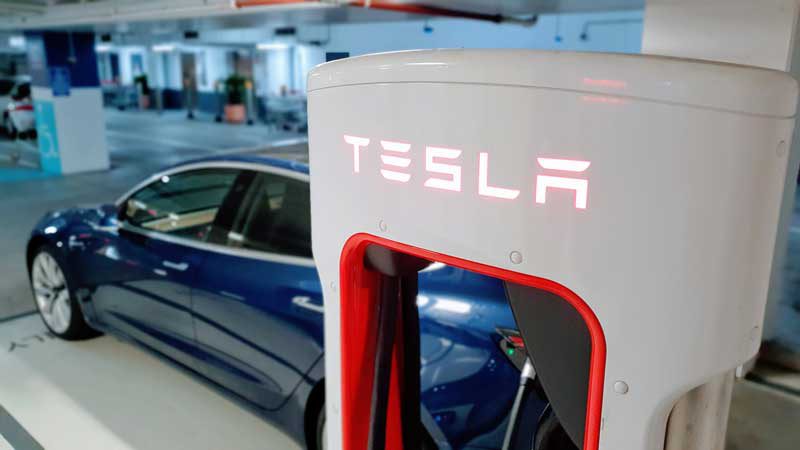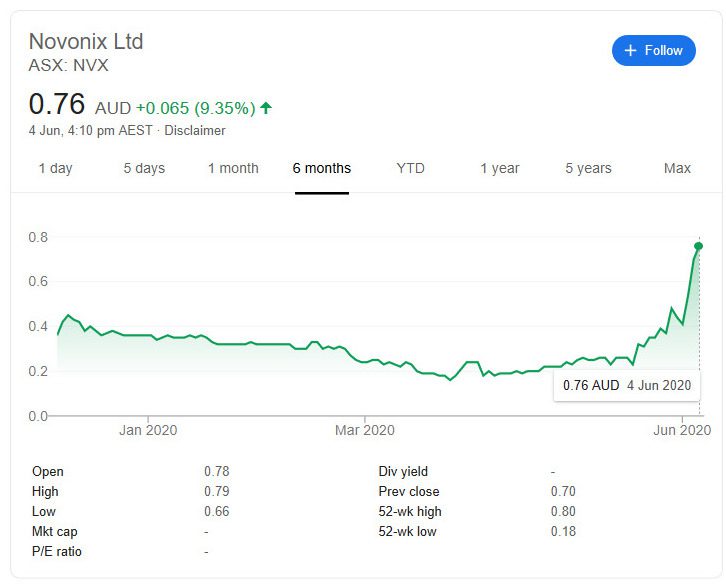Market analysts say Tesla may be getting close to pinning down a date for the highly anticipated Battery Day, as rumours emerge of a new partnership with lithium-ion battery testing equipment supplier Novonix.
Battery Day was originally expected sometime in the first quarter of 2020, however was put back by CEO and co-founder Elon Musk to April, before being split into two events (one online and one face-to-face) on as yet undecided dates. It is expected that a webcast event may be conducted in June.
Tesla CEO and co-founder Elon Musk has promised a battery that will last one million miles (1.6 million kilometres), and in September 2019 Tesla’s head battery researcher Jeff Dahn of Dalhousie University in Canada published a paper outlining the significance of a single crystal cathode patent that would bring the promised battery significantly closer.
Then, Reuters reported that people familiar with the Tesla said that research and development of battery chemistry from Chinese battery maker CATL and Tesla’s battery research team would bring the cost of electric car batteries below $US100/kWh, the magical number that analysts say will make electric cars as cheap to make as petrol and diesel cars.
Wedbush analysts Dan Ives and Strecker Backe think that day may be looming, telling clients in a note published on Monday that Tesla is getting closer to announcing the million-mile battery,” it was reported by Business Insider.
“In our opinion this battery technology will be very advanced, potentially last for decades, withstand all types of weather/terrain, and be another major milestone for the Tesla ecosystem,” Ives and Backe were quoted as saying.
“In theory, this battery will support an electric vehicle for 1 million miles and be a major step forward when competing vs. traditional gasoline-powered automotive competitors from both [a return-on-investment] and environmental perspective.”
“Another linchpin to Tesla’s battery innovations and the Street’s focus of the upcoming Battery Day will be reducing battery production costs to the key $100/kWh threshold, as this would give Tesla much more financial flexibility around pricing on current and future EV models with price parity,” Ives and Backe said in the Monday note.
Meanwhile, rumours of another partnership riding on the back of new battery research described in a paper published in Cell in May has been reported by Australian stock site Small Caps.
According to Small Caps, share values of li-ion battery materials and testing pioneer Novonix have skyrocketed following rumours that Novonix may announce a partnership with Tesla, jumping 9.35% on Thursday to close at 0.76c.
Novonix, a publicly listed company on the Australian Stock Exchange, currently supplies battery testing equipment to the likes of Apple, Microsoft, GM, Panasonic – and Tesla.
The paper, titled “Engineered Particle Synthesis by Dry Particle Microgranulation”, was published following the announcement of a deal between Novonix and Kore Power in August 2019 that would see the two companies explore testing and improving electrolyte, cathode, and anode materials including graphite anodes, undertaking “several phases of work relating to the use of different materials and cell design, which are hoped to improve battery performance and lower manufacturing costs.”
Both Tesla and Novonix sponsor researchers at Dalhousie University, and in response to an enquiry from The Driven, Novonix managing director Philip St Baker confirmed in an email that Novonix is the sponsor of Professor Mark Obrovac and his research group who published the paper, “and as such has 100% rights to all IP developed [which] includes the recently announced DPMG process technology and associated new materials including new graphite anode and new cathodes.”
St Baker also confirmed that, “Prof. Jeff Dahn and his group (also at Dalhousie) is exclusive to Tesla, while noting Jeff has provided opinion on the Mark Obrovac discoveries to which Novonix has filed patents.”
St Baker did not deny nor confirm a possible partnership between the two companies.
The paper discusses a new method of producing the graphite used in lithium-ion batteries without losing yield, and at the same not incurring extra manufacturing costs.
Graphite is a key material in batteries because it helps reduce battery degradation, thus increasing battery life, and the new dry particle microgranulation (DPMG) method outlined in the paper “represents breakthrough in reducing the cost, waste, and environmental impact of advanced powder production. In addition, it enables the bulk synthesis of never before seen designer materials, which could lead to enhanced performance,” Obrovac said in a statement.
Burns said of the research that, “I believe that the ability to synthesize appropriately-sized dense particles of NMC and other positive electrode materials in a completely waste-free process, unlike the current methods used today by industry, has huge potential. I congratulate the Obrovac team for their outstanding and innovative work done in the Chemistry department at Dalhousie University.
Novonix subsequently patented the DPMG method, and in late May announced it would raise $58.28 million in capital that it says it will use to “facilitate development and commercialisation of the DPMG technology for cathode and other million-mile battery innovations,” in a statement via its website.

Bridie Schmidt is associate editor for The Driven, sister site of Renew Economy. She has been writing about electric vehicles since 2018, and has a keen interest in the role that zero-emissions transport has to play in sustainability. She has participated in podcasts such as Download This Show with Marc Fennell and Shirtloads of Science with Karl Kruszelnicki and is co-organiser of the Northern Rivers Electric Vehicle Forum. Bridie also owns a Tesla Model Y and has it available for hire on evee.com.au.


